Mount & Blade II: Bannerlord
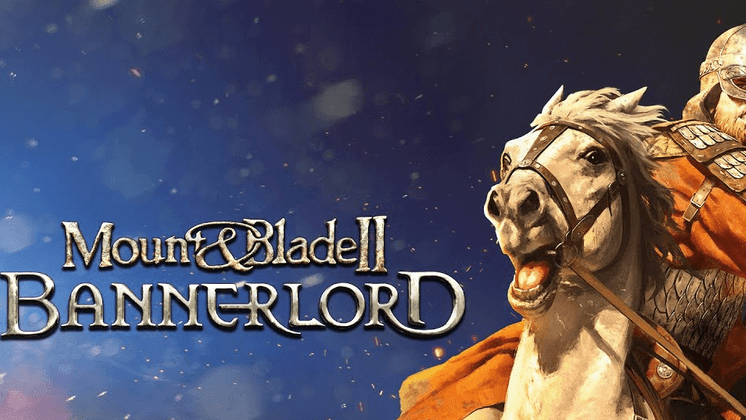
Mount & Blade II: Bannerlord - The game in which you are not the main character
Imagine for a moment that you were born in the eleventh century. There were internecine strife between states, disease, people surviving as best they could, and you were in the background...okay, you didn't have to stretch your imagination too much. But in XI, all these struggles had to endure without smartphones and McDonald's!
The original Mount & Blade did not enjoy enormous popularity among the masses, but it gained a devoted army of fans. Sandbox in a medieval setting, in which the player is given the opportunity to literally from the cradle to spend protagonist royal lands and siege castles, or to his deathbed in poverty - so the original idea of Mount & Blade. Years later, modders have mixed in the original down-to-earth themes of the Middle Ages fantasy motifs. In a particularly specific modification instead of peasants player took under the control of ninja Village of Leaves...
Mount & Blade II: Bannerlord went into early access in 2020 in relatively acceptable form, and reached full release on October 25, 2022. And it was that rare case where two additional years of development went into refining the game rather than lining the pockets of the developers.
War is peace
Although Mount & Blade II: Bannerlord positions itself as one of the freest sandbox games with a seamless open world, this is half-true. Mount & Blade II: Bannerlord is a single-player oriented game where multiplayer is added just to tick off the box. Role-playing is only possible in front of yourself.
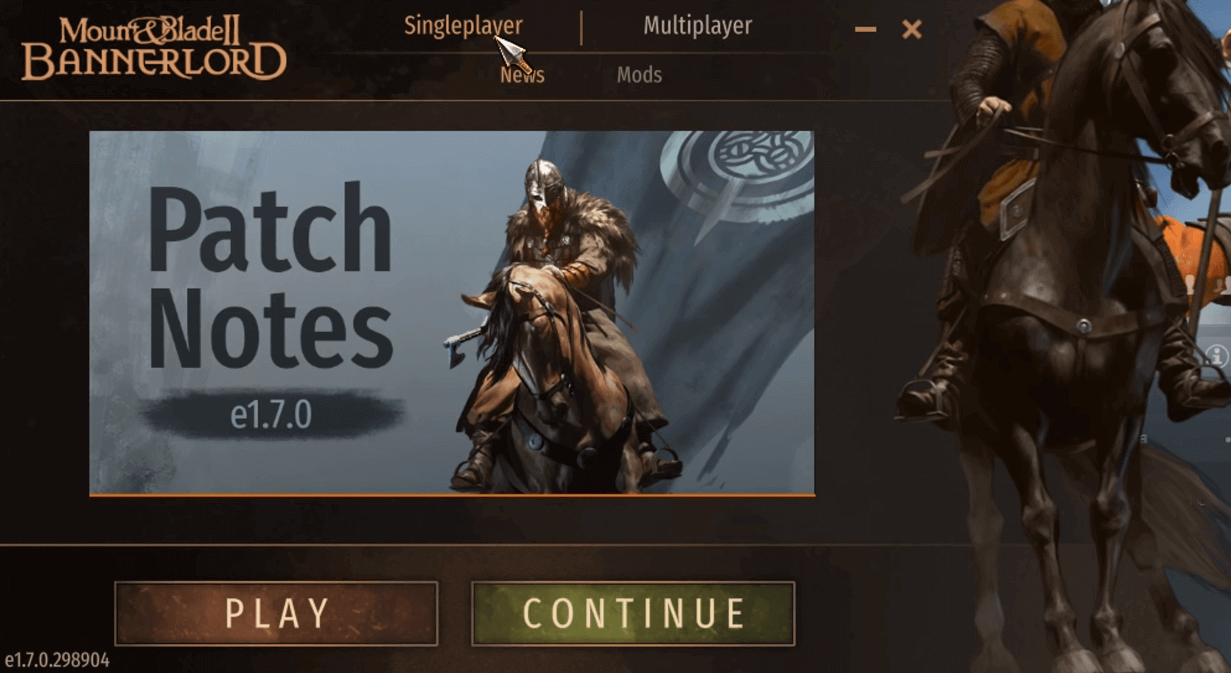
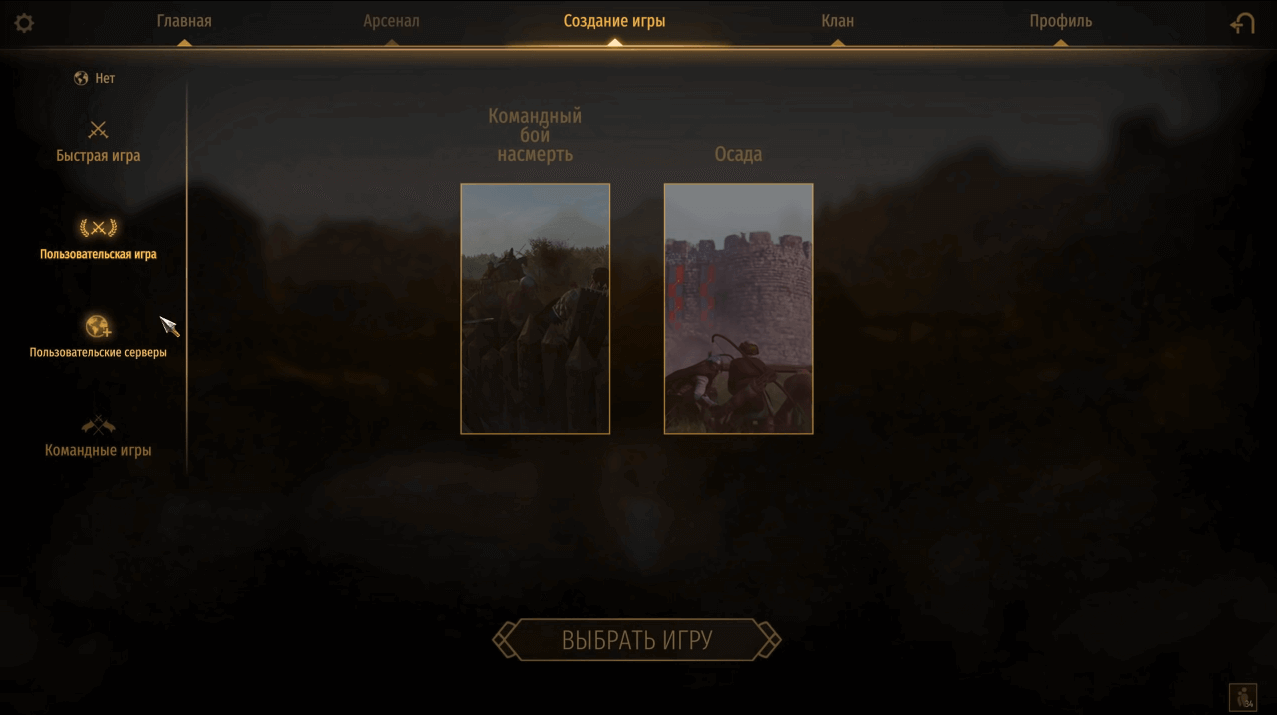
But Mount & Blade II: Bannerlord multiplayer is not necessary. The game sucks even without the network battles.
From the game menu we are immediately offered a choice between the campaign or sandbox mode. In sandbox mode from the start to adapt without experience is impossible. But the campaign offers a simple story about two brothers who lost their parents during the raid of bandits. The protagonist's younger brother and sister are kidnapped, so there's nothing left to do but create their own clan and go in search of them. But where exactly the story begins depends on our decision.
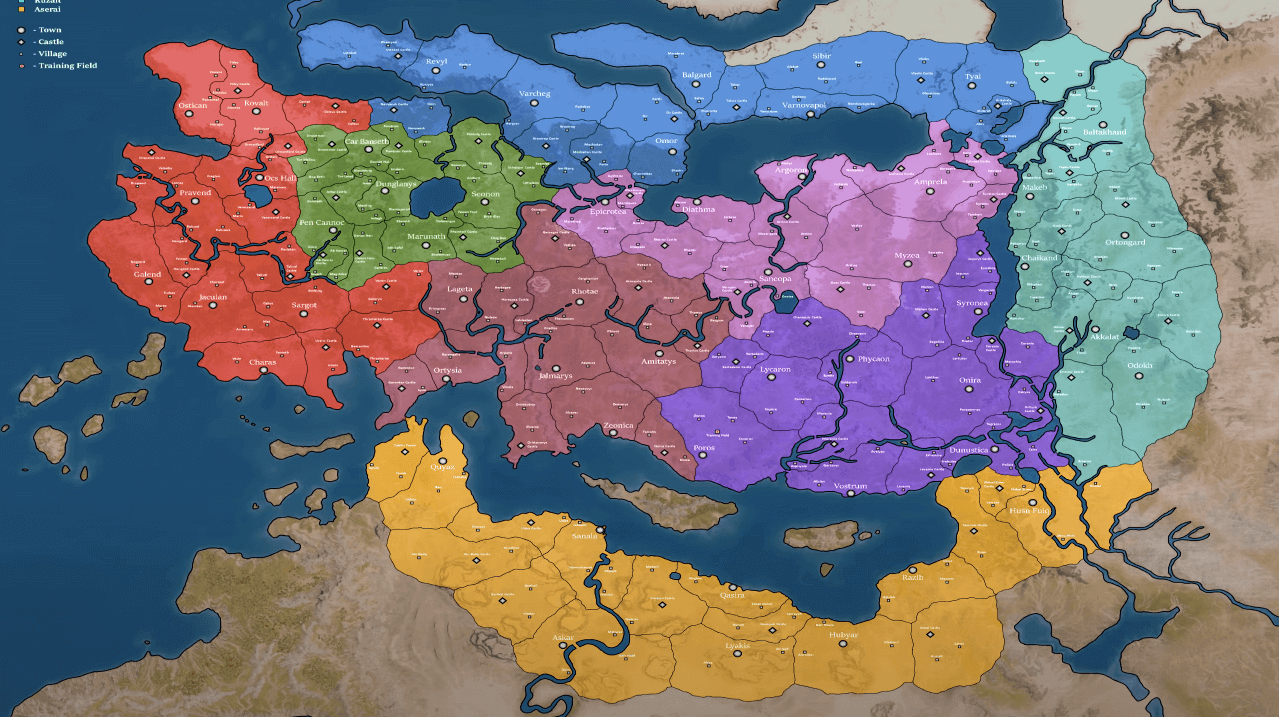
The protagonist can be born in one of the six states, but the story each time will begin with the death of his parents, the creation of his clan on the road to eternal glory and absolute power.
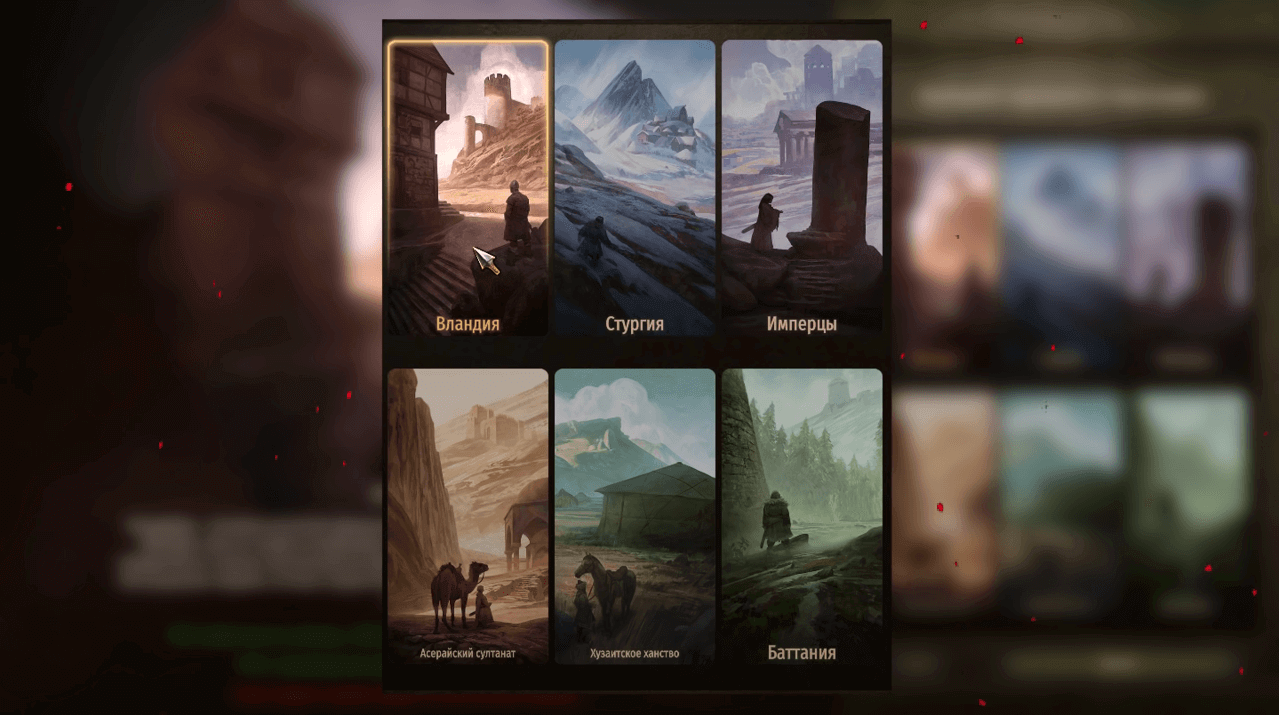
But once you get used to the rules of the game, you begin to realize that there is no absolute freedom in the game. Yes, the sandbox theme is well-discovered, but initially whoever you choose - the beginning of the game is the same: wandering around a huge map, performing "go fetch" tasks and fighting with homeless-looking robbers:
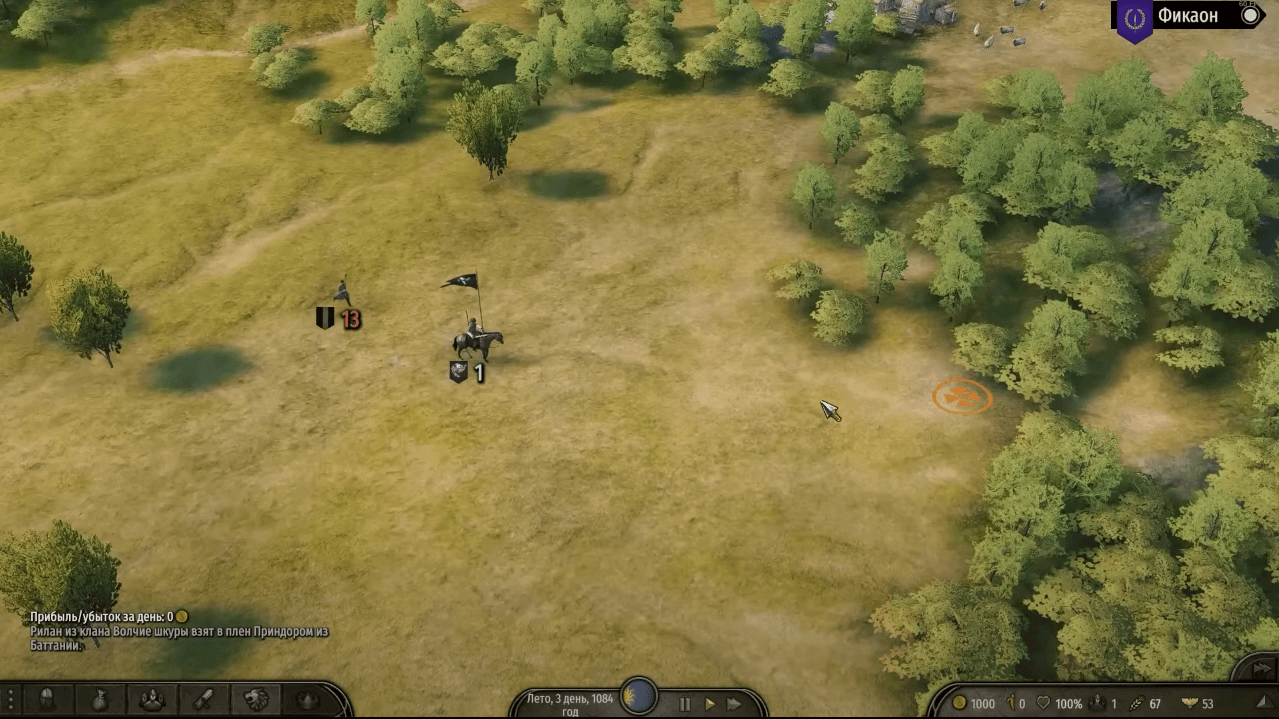
The main story quest also does not shine with scriptural finesse; however, the quests in Mount & Blade II: Bannerlord have one peculiarity - they are all temporary and do not give direct instructions. Did you promise to bring five axes to a rogue mercenary in some village, are you attacked by bandits and taken prisoner? That is your problem. Requests on time you have not fulfilled - a quest failed, and the relationship with the employer spoiled. Even successfully completing quests on time, you will still fall into someone's disgrace, because you'll be working for a competitor. But do you play sandboxes for the sake of one-type secondary tasks?
Unfortunately, Mount & Blade II: Bannerlord does not break the pattern of gaming conventions. You have to perform the same type of tasks, and not in small quantities. As in life, everything rests on money. But in contrast to real life, Mount & Blade II: Bannerlord gives only a parody of the development of your business. Despite the dynamic economy, you can't make all the money, buy everyone and ascend to the throne without spilling a single drop of blood. Even with the most advanced diplomatic skills, you have to take up arms. What is the point of lauded diplomacy if the geopolitical situation on the map sooner or later comes to a standstill? It's not clear.
Mount & Blade II: Bannerlord won't let you build political intrigues, won't let you frame the current kings with insidious methods. You will only be free to ingratiate yourself with higher-ups.
One of the features of the game allows you to play a mortal character - such a character gets old, then dies of old age, and the player continues the game as his descendants. So, these descendants are very profitable to marry princesses / princes - a tribute to realism. This was practiced everywhere in the 11th century. In the game, however, the protagonist's younger siblings are perceived solely as an investment in the future. But no matter how eloquent and educated children grow up, war cannot be avoided. Of course, a pacifist style of play would hit the content hard, taking a whole layer out of the gameplay. But it is much better when it is theoretically possible.
Rising from the knees and poverty will have to be done in one way - by battles in the arena...
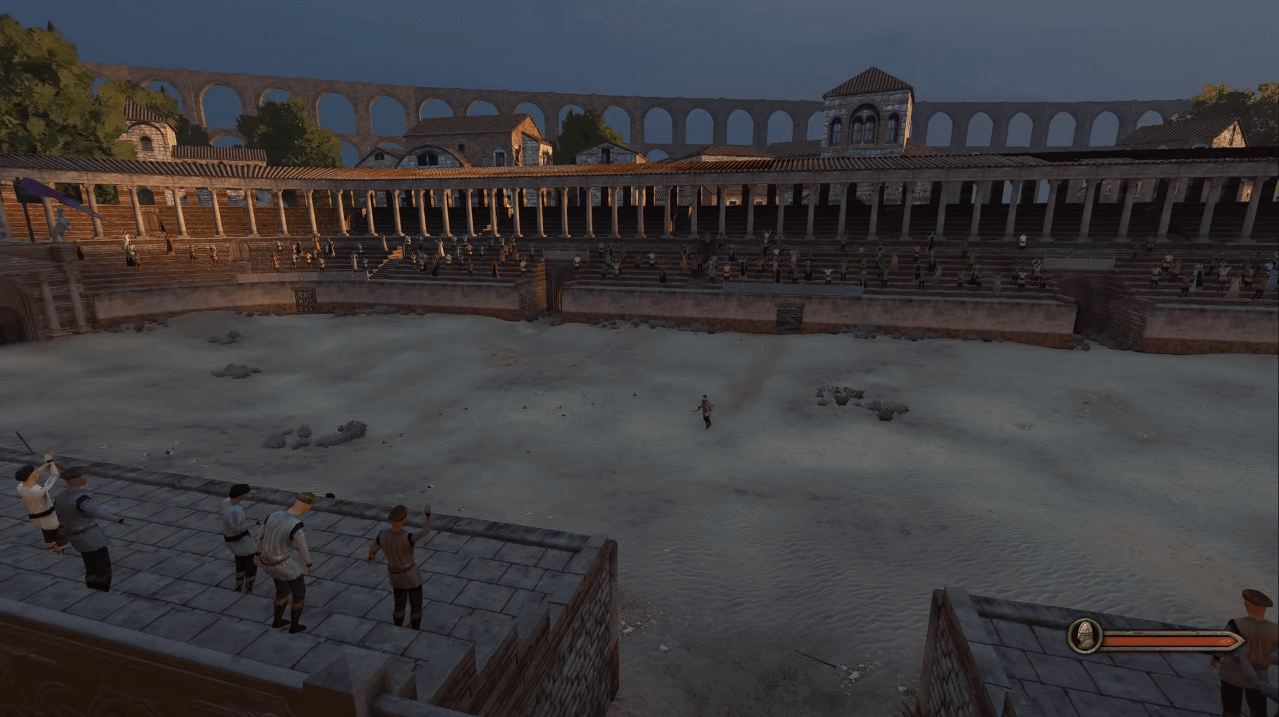
Let the battles and tutorials, supposedly no one dies after the battles, but why does a game that positions itself as almost the best sandbox, not give the opportunity to make the first serious money by bargaining? Why is it advantageous to resort to violence in a game with such supposedly absolute freedom of choice?
Freedom is slavery
Mount & Blade II: Bannerlord doesn't forgive mistakes: once you have too many warriors in your clan, you're penniless. Each individual soldier in the army needs to be paid a salary, clothed and equipped. In fact, Mount & Blade II: Bannerlord is a strategy where each individual unit is customizable, each individual unit is pumped individually. Outfitting your own troops is one of the main motivators for progressing through the story.
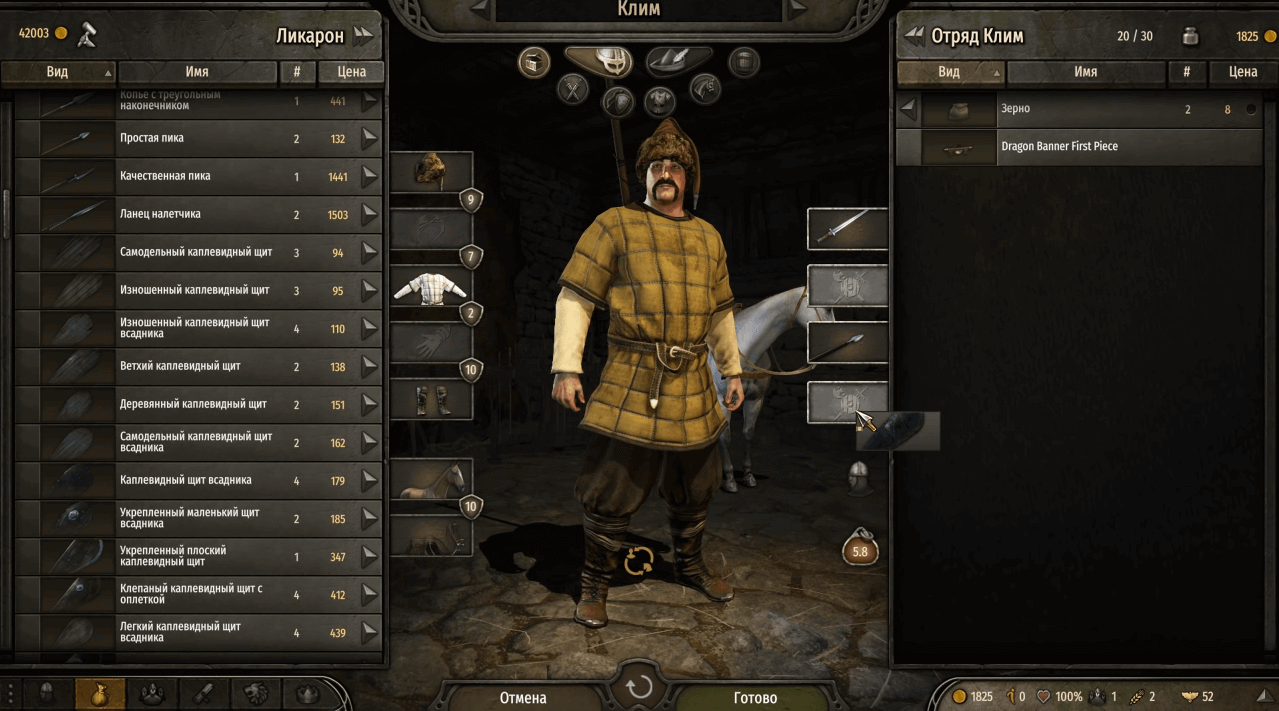
Skirmishes with brigands are inevitable, but losses can be avoided. Ten experienced fighters are worth three dozen recruits. You can recruit an army even from the surrendered brigands. They will resist for a while, but will eventually surrender anyway.
Morale is not so high with a motley army: the first serious problem is that yesterday's friends are already on the run. Machiavelli warned of this...
Mount & Blade II: Bannerlord is full of such nuances. Managing your own army is one thing that will take you a huge amount of time. But if you do it right, the result will be worth it. You can manage your troops from the side - just give the commands on time and watch how your heroes cope without your help. The rule works the other way around as well - no man in the field: if you lose your troops, you're screwed.
The strategy menu consists of more than 10 different commands, so just spamming "Go!" - is a sure way to the grave. But as you learn how to handle your troops you'll eventually notice that wandering around alone is less profitable than joining one of the Calradian states. This is where the rational agent comes into play again - the notion that the game supposedly gives you a choice, but that one option is obviously more advantageous than the other.
Ignorance is power
The world of Mount & Blade II: Bannerlord lives its own life, the world of Mount & Blade II: Bannerlord does not care about the protagonist: trade caravans go on their own schedule, states clarify relations, surrender positions or lead without the player's influence, and prices in cities do not depend on how many points the player invested in "barter", but on the needs of the population.
While the world is not even aware of the existence of the player's character, everything that happens is interesting to watch. You get the impression that you are in a simulation of that era, that you look at the world of the Middle Ages through the eyes of a mute observer. It gives the impression of a tour. Initially, the locals behave with the protagonist as if he were an annoying immigrant: they offer to join their clan - they send him away, they look into the town and offer to help. The local commoner will say that you can't even help yourself...
While the formation of the protagonist is still just beginning, Mount & Blade II: Bannerlord feels like a sandbox, but worth playing 30 hours...
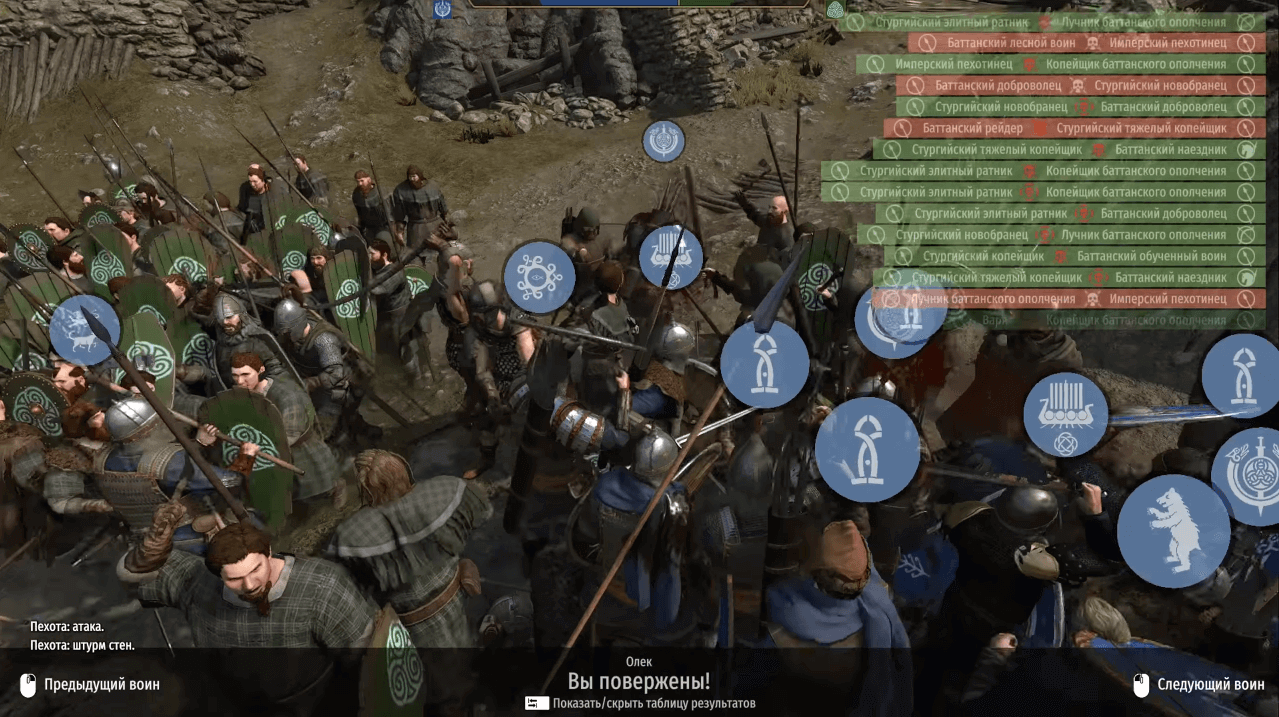
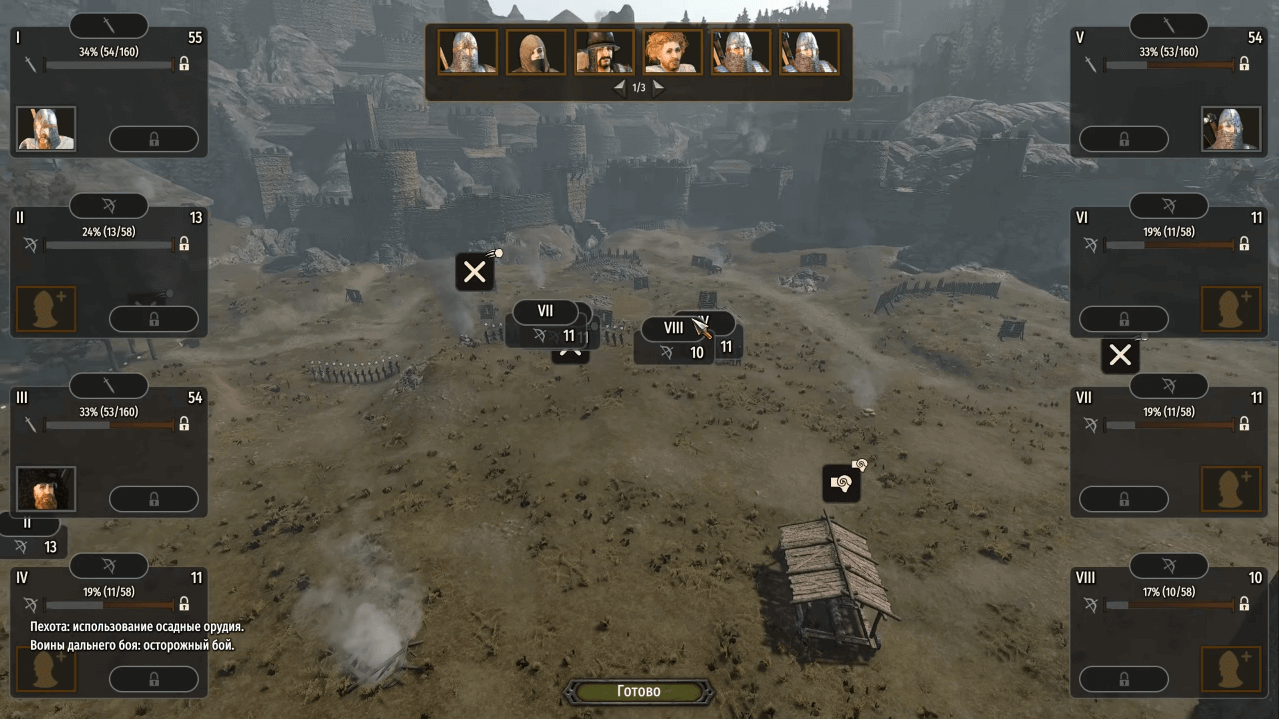
...The game becomes an action-RPG and a strategy game in one. The protagonist is no longer a small fry, an ant in a vast world. He's a glorious warrior and a bit of a Game of Thrones character, solving plots against the king and conquering settlements.
Over time, Mount & Blade II: Bannerlord can lose what it initially may have caught on. Mount & Blade II: Bannerlord ceases to be a simpleton simulator. The increased scope of events does not make the game worse, but just loses a couple of points of uniqueness.
Is it worth it?
Despite its success, Mount & Blade II: Bannerlord remains an extremely niche game. It takes dozens of hours to get into what's going on, to have fun, and to individualize your character just a little bit. If you've been looking for a time-killer for a long time, you've found it. But if you're looking for an evening game before bedtime, Mount & Blade II: Bannerlord is not your option, this game requires a huge time investment.
